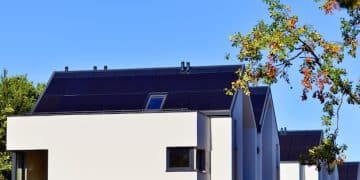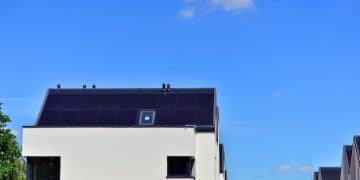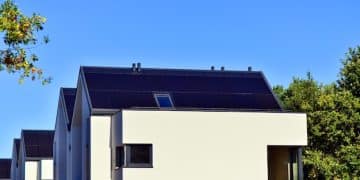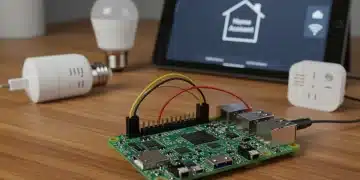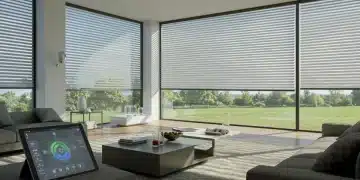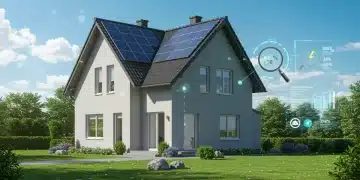Solar panel installation tips: boost your savings today

Solar panel installation tips include choosing the right location, using quality materials, and performing regular maintenance to ensure optimal efficiency and longevity of your solar energy system.
If you’re considering going green, solar panel installation tips can greatly influence your energy efficiency and savings. Have you ever wondered how to maximize your investment while contributing to a sustainable future? Let’s uncover some practical advice to guide you through the process.
Understanding solar panel systems
Understanding solar panel systems is essential for anyone considering solar energy. These systems convert sunlight into electricity, offering a sustainable energy source that can reduce your energy bills and carbon footprint. They are made up of several components that work together to harness solar energy.
Key Components of Solar Panel Systems
Solar panel systems consist of multiple parts that include:
- Solar panels: These are the most recognizable components. They capture sunlight and convert it into electricity.
- Inverters: These devices convert the direct current (DC) produced by the panels into alternating current (AC), which is used in homes.
- Mounting systems: These secure the panels to your roof or on the ground, ensuring they are positioned for maximum sunlight exposure.
- Batteries (optional): They store excess energy for later use, providing power when sunlight is not available.
Every component plays a vital role in optimizing energy production. The efficiency of your solar panel system depends on how well these parts work together. Choosing high-quality components can lead to better performance and longer system life. Regular maintenance is also crucial to ensure everything functions smoothly. By understanding how these systems operate, you can make informed decisions about your solar installation. Consider consulting with professionals for installation and maintenance advice to maximize your investment.
Choosing the right location for installation

Choosing the right location for installation is crucial for your solar panel systems to operate effectively. The placement of your solar panels can significantly influence their performance and the overall energy you can generate. By considering factors such as sunlight exposure and shading, you can maximize efficiency.
Factors to Consider
When selecting a location, keep in mind these important factors:
- Sunlight Exposure: Ensure that your panels receive direct sunlight for most of the day. Locations with less shade will yield more energy.
- Roof Orientation: South-facing roofs in the northern hemisphere typically receive the most sunlight. However, east and west-facing roofs can also be effective depending on shading.
- Angle of Installation: The angle at which panels are installed affects their performance. A tilt that matches your latitude usually works best.
- Local Weather Conditions: Areas with frequent rain, snow, or harsh winds can impact the durability and efficiency of solar panels. Choose locations that experience favorable weather conditions.
Taking the time to scout potential sites will pay off in the long run. You might want to consider installing your solar panels on open land if you don’t have suitable roofs. Ground-mounted systems can often be adjusted for optimal sunshine. Remember, the key is to avoid obstructions like trees or buildings that may cast shadows on your solar energy system. A sunny, unobstructed location can drastically improve the energy output and your return on investment. Always consult with solar installation professionals to evaluate the best site for your needs.
Best practices for installation efficiency
Implementing best practices for installation efficiency ensures your solar panel system performs optimally. By following these strategies, you can increase energy production and extend the lifespan of your equipment.
Optimize Your Installation
Proper installation is key to achieving the best performance. Here are some practices to enhance efficiency:
- Use Quality Materials: Invest in high-quality solar panels and inverters. Cheap components can lead to poor performance and potential failures.
- Professional Installation: Hire experienced professionals who understand the nuances of solar technology. Proper installation can greatly affect the overall efficiency.
- Regular Maintenance: Schedule regular inspections and cleaning. Dirt and debris can reduce efficiency, so keeping panels clean is vital.
- Monitor Performance: Use monitoring tools to keep track of energy production. This way, you can detect and address any issues early.
Taking into consideration local codes and regulations can also streamline the installation process. Neglecting these can lead to delays and added costs. Additionally, informing yourself about potential incentives or rebates can help lighten the financial load of your solar investment. Ensuring your solar panels are securely fastened is essential too; this prevents damage during severe weather. Placement and angle should be adjusted carefully to capture maximum sunlight throughout the day. In the end, the right combination of quality, professional help, and proactive maintenance will lead to a successful and efficient solar energy system.
Maintaining your solar panels for longevity

Maintaining your solar panels for longevity is essential to ensure their efficiency and extend their lifespan. Regular care can help you avoid costly repairs and replacements. Understanding the basic maintenance tasks will keep your solar energy system in top condition.
Regular Cleaning
One of the simplest yet effective ways to maintain your solar panels is through regular cleaning. Debris, dust, and bird droppings can accumulate on the surface and hinder sunlight absorption. Gently wash the panels with water or a soft brush to remove any buildup.
Inspect for Damage
Routine inspections are important. Look for any visible signs of damage, such as cracks or loose fittings. If you notice any abnormalities, seeking professional help promptly can save you from bigger issues down the road. Regular inspections also ensure that your mounting systems remain secure.
Monitor Performance
Regularly checking the performance of your solar panels is crucial to catch any faults early. Many solar systems come with monitoring technology that alerts you if the energy output drops significantly. Keeping tabs on your energy production helps you stay informed about your system’s health.
Remember, local weather conditions can affect your maintenance routine. Areas with heavy snowfall may require additional cleaning after winter, while regions with frequent rain may need less. Additionally, be aware of nearby trees; branches can create shade or even fall on your panels, causing damage. By following these simple maintenance tips, you can ensure that your solar panels remain effective for many years, providing you with clean energy and savings.
FAQ – Frequently Asked Questions about Solar Panel Installation
What are the key factors to consider when installing solar panels?
The key factors include sunlight exposure, roof orientation, angle of installation, and local weather conditions.
How often should I clean my solar panels?
It’s recommended to clean your solar panels at least twice a year or more frequently if you live in a dusty area.
What maintenance is needed for solar panels?
Regular inspections for damage, cleaning, and monitoring performance are essential for maintaining solar panels.
Can I install solar panels myself, or should I hire a professional?
While DIY installation is possible, hiring a professional ensures proper installation, compliance with local codes, and optimal performance.
